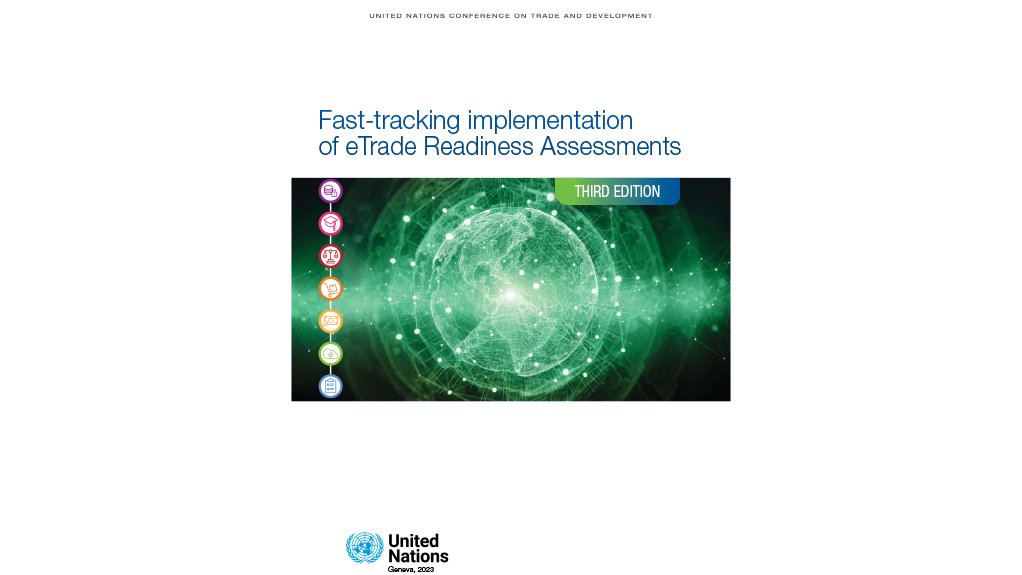- Fast-tracking implementation of eTrade Readiness Assessments - Third edition2.97 MB
In the context of the evolving digital economy and multiple crises, the potential of e-commerce to contribute to the Sustainable Development Goals (SDGs) remains largely untapped. With the acceleration of ICT adoption and e-commerce, developing countries and regions face a growing range of opportunities and challenges.
UNCTAD's eTrade Readiness Assessments (eT Readies) have proven to be useful tools for governments, regional institutions, and the private sector to navigate their digital transformation journeys. By providing an inclusive and comprehensive assessment, they help to foster multi-stakeholder collaboration to bridge digital, data, and innovation gaps, as well as to support the establishment of necessary governance structures. They also identify critical areas where collaborative efforts in the digital realm are urgently needed and explain how national initiatives can contribute to realizing the commitments made at regional and international levels. The diagnostics also help development partners with the design of their digital strategies and support programmes.
However, these assessments mark only the initial stage. Their true value becomes evident when policy recommendations are actually implemented. Since the establishment of UNCTAD's eT Ready Implementation Support Mechanism (ISM) in 2020, numerous activities for capacity-building, knowledge sharing, and stakeholder engagement have been arranged to enhance the implementation capabilities within each country.
This third Implementation Review provides an updated analysis of how eT Readies, and the policy recommendations they offer, are leveraged to strengthen countries' ability to engage in and benefit from e-commerce. It shows how eT Ready partner countries are transforming their e-commerce development agenda, establishing governmental processes and systems to coordinate the implementation of e-commerce policy actions and operationalize enabling reforms, and expanding smart partnerships to grow sustainably their e-commerce ecosystem. The report also illustrates the multifaceted challenges encountered in the implementation process and recognizes that more efforts are needed to foster an inclusive whole of government/whole of society approach.
I would like to thank the eT Ready focal points in the countries we work with and the various stakeholders who contributed to this review, without which progress could not be tracked. My gratitude also goes to all the core donors supporting UNCTAD's work in the area of e-commerce and the digital economy, namely the governments of Germany, the Netherlands, Sweden and Switzerland. I also want to acknowledge and appreciate the valuable contributions of our eTrade for all partners, who bring their expertise to the eT Readies and to the implementation stage. At the same time, there is still significant scope for more involvement of the larger community of development partners and donors. A much-reinvigorated impetus is needed in supporting implementation of priority recommendations, as much as in enhancing the countries' capacities for an efficient and effective policy coordination. On our part, we stand ready to scale up our support at the national and regional level. UNCTAD will also seek to further strengthen our collaboration with the UN Resident Coordinator Offices to facilitate effective on-the-ground dialogue and ensure the integration of countries' e-commerce related priorities into UN Cooperation Frameworks and national development plans.
Our aim is to help build a more sustainable and inclusive global digital economy though enabling economic development for the benefit of all.
Report by the United Nations Conference on Trade and Development
EMAIL THIS ARTICLE SAVE THIS ARTICLE ARTICLE ENQUIRY
To subscribe email subscriptions@creamermedia.co.za or click here
To advertise email advertising@creamermedia.co.za or click here











